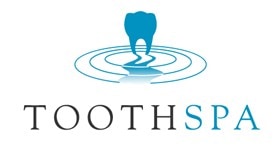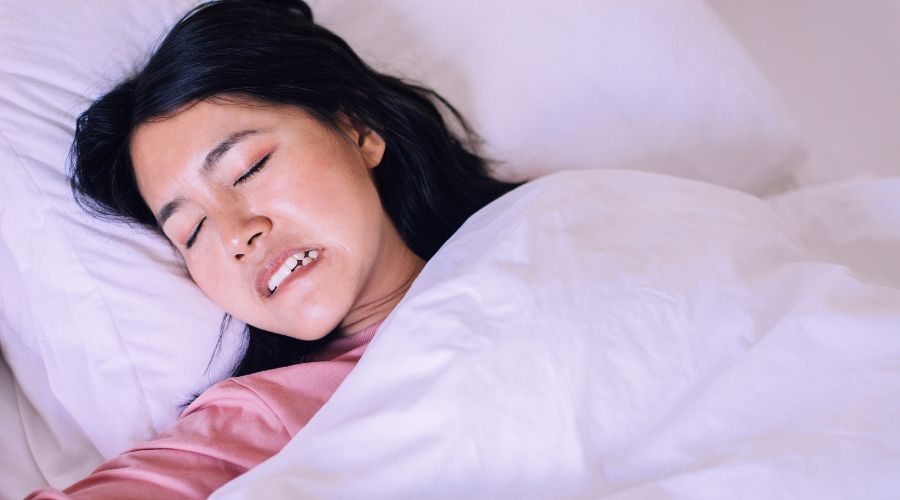At Tooth Spa, we ensure a comfortable and affordable environment to address all your dental concerns including teeth grinding. Teeth grinding is a medical condition also known as bruxism. Many believe that around 31% of the population suffers from bruxism, many of whom are unaware that they grind or clench their teeth as it usually occurs while sleeping.
Because of this nocturnal occurrence, it is important to be aware of the symptoms of teeth grinding and to take measures to prevent damage to your teeth.
Symptoms Of Teeth Grinding
Some signs you may be grinding your teeth are worn, fractured, loose, or chipped teeth. You may also make grinding noises during the night that are loud enough to wake you or your partner. Some experience increased sensitivity from the enamel being worn thin, exposing the deeper layers of the teeth.
The clenching and grinding may also place considerable stress on your jaw and surrounding facial area, causing pain and soreness. It is not uncommon to have headaches and earaches from the tension. In its extreme state, your jaw can become locked, preventing it from fully opening and closing.
Causes Of Teeth Grinding
Medical professionals do not fully understand what causes teeth grinding though there are some correlations to certain physical and psychological conditions. Some physical conditions include misalignment of the upper and lower teeth, sleep apnea, earache, teething in children, and acid reflux.
Some psychological conditions that may contribute to teeth grinding are anxiety, stress, tension, anger, frustration, aggression, and hyperactivity. Complications from disorders such as Parkinson’s disease and Huntington’s disease can contribute to bruxism.
The use of certain substances can increase your risk factor for teeth grinding. Stimulating substances such as caffeine, alcohol, tobacco, and some illegal drugs may contribute to bruxism.
Age is another component. Medical professionals have found teeth grinding to be common among children, often as a response to the pain of teething and earaches, but that it usually resolves itself in the teen years.
Consequences Of Not Treating Teeth Grinding
Severe cases of teeth grinding left untreated can lead to some complications. In addition to the facial and jaw pain, the wear, and tear from the clenching and grinding can damage your teeth, jaw, restorations, or crowns. Dysfunction may occur in the temporomandibular joints (TMJs), leaving a person with temporary limited use of their jaw.
Teeth Grinding Treatments
There are several options for treating bruxism. After we have evaluated the extent of your condition, you will discuss which treatment is best for you to help prevent and correct the wear to your teeth. Dental approaches to treating teeth grinding are:
- Mouthguards – Made of either hard acrylic or other softer materials, the mouthguard is designed to fit over your lower or upper teeth, thus separating them to prevent further damage.
- Fillings & Crowns– Areas of wear can be protected with fillings or crowns which can also aid in the alignment of the teeth.
- Orthodontics –In some cases, we may recommend orthodontic realignment of teeth to minimize grinding and tooth wear.
Get Treatment In Sunnyvale
Located in Sunnyvale, CA, we are available to discuss any questions and concerns you may have about teeth grinding. Let our dental professionals assist you in finding the best option to help keep your teeth damage free. Call Tooth Spa to set an appointment today.

